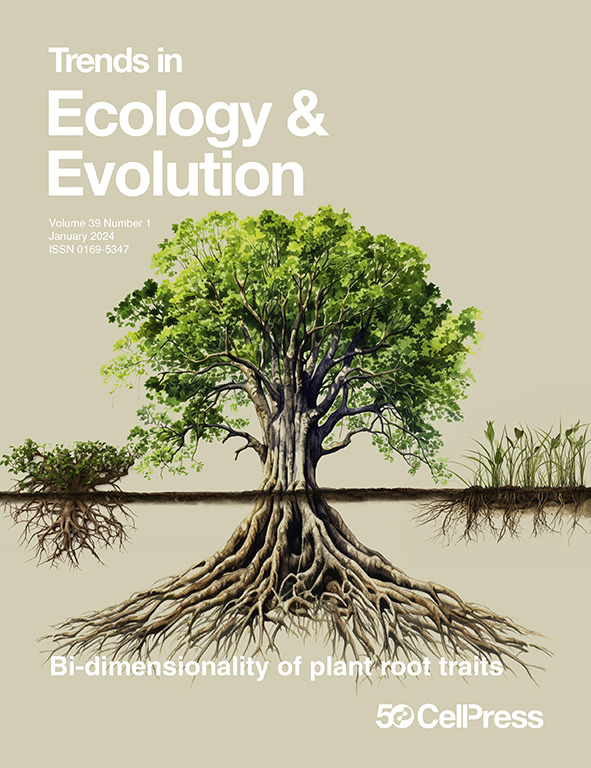我们能从鲨鱼的消失中学到什么?
IF 17.3
1区 生物学
Q1 ECOLOGY
Trends in ecology & evolution
Pub Date : 2025-06-01
Epub Date: 2025-05-14
DOI:10.1016/j.tree.2025.04.012
引用次数: 0
摘要
顶端捕食者的减少对生态系统的结构和功能具有级联效应。Hammerschlag等人揭示了南非福斯湾白鲨的消失是如何引发中掠食者数量的增加和猎物数量的减少的,强调了营养级联在塑造海洋群落结构中的关键过程。本文章由计算机程序翻译,如有差异,请以英文原文为准。
What can we learn from the loss of sharks?
The decline of apex predators has cascading effects on ecosystem structure and function. Hammerschlag et al. reveal how the loss of white sharks in False Bay, South Africa triggered an increase in mesopredators and a decline in prey, underscoring the critical process of trophic cascades in shaping marine community structure.
求助全文
通过发布文献求助,成功后即可免费获取论文全文。
去求助
来源期刊

Trends in ecology & evolution
生物-进化生物学
CiteScore
26.50
自引率
3.00%
发文量
178
审稿时长
6-12 weeks
期刊介绍:
Trends in Ecology & Evolution (TREE) is a comprehensive journal featuring polished, concise, and readable reviews, opinions, and letters in all areas of ecology and evolutionary science. Catering to researchers, lecturers, teachers, field workers, and students, it serves as a valuable source of information. The journal keeps scientists informed about new developments and ideas across the spectrum of ecology and evolutionary biology, spanning from pure to applied and molecular to global perspectives. In the face of global environmental change, Trends in Ecology & Evolution plays a crucial role in covering all significant issues concerning organisms and their environments, making it a major forum for life scientists.
 求助内容:
求助内容: 应助结果提醒方式:
应助结果提醒方式:


